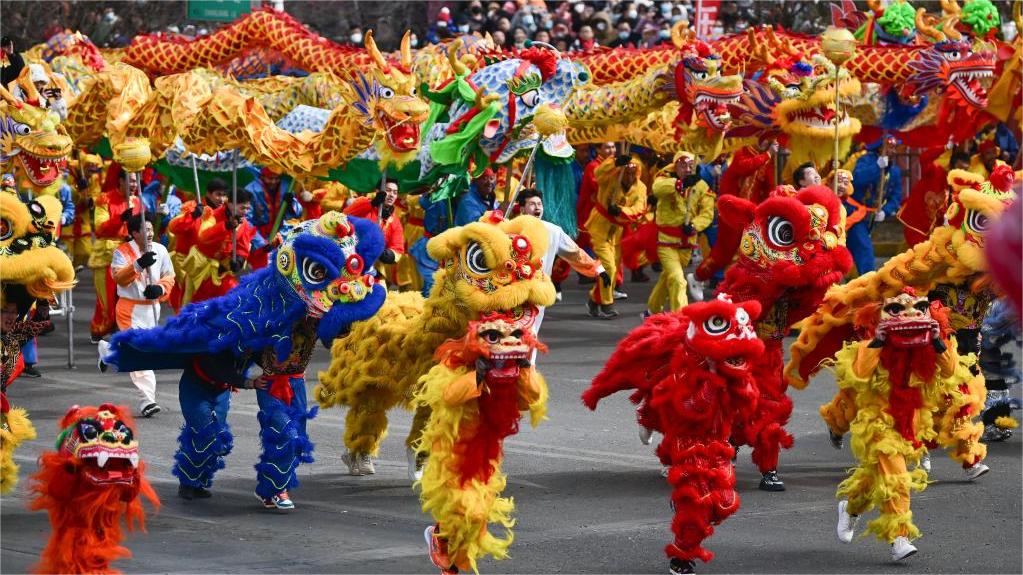Colombo bows to New Delhi's coercion

Aerial photo taken on May 5, 2021 shows the Colombo Port City in Colombo, Sri Lanka. [Photo/Xinhua]
It is a pity that Sri Lanka has imposed a one-year ban on Chinese research vessels from docking in its ports or operating in its exclusive economic zone starting from Monday, according to a Hindustan Times report. The move came after Indian Prime Minister Narendra Modi urged Sri Lankan President Ranil Wickremesinghe to respect India's "strategic and security concerns" during their meeting in July last year.
That it took nearly half a year for Colombo to issue the controversial ban, without providing any evidence to substantiate New Delhi's "speculation" that the Chinese vessels sailing there are used to "track Indian military tests and survey strategically important waters", demonstrates how much pressure India has exerted on Sri Lanka. And the logic underlying Modi's appeal is that the military activities of India in Sri Lanka's EEZ contributes to the island country's security.
It is the close economic and trade cooperation between China and Sri Lanka, an important participant in the Belt and Road Initiative, that has prompted New Delhi to try and drive a wedge between the two. New Delhi considers China to be India's rival, which is evidenced in India's presence in almost all the US-led anti-China cliques in the region, including the Quad.
By bullying its neighbors, including Nepal, to take a tough stance toward China, New Delhi has set a very bad example. Its coercive practice will seriously undermine regional peace and stability. By hyping up a China "threat", the Modi government is attempting to divert public attention from India's domestic woes, which range from government corruption to the economic recession and unemployment issues.
An exclusive economic zone, as prescribed by the 1982 United Nations Convention on the Law of the Sea, does not define the ownership of any maritime features (islands, rocks and low-tide elevations) within it. Considering that many EEZs of different countries overlap with busy international shipping lanes and key marine research waters, if all countries copy the wayward ban imposed by Sri Lanka on certain categories of vessels of a particular country, the normal marine transport and scientific research activities that are protected by international laws and conventions will be subjected to the will of certain countries. That will greatly increase logistics costs and increase regional frictions.
Photos
Related Stories
- Sri Lankans urged to use electricity sparingly as demand spikes due to dry weather
- Sri Lanka's presidential election to be held within mandated period
- Sri Lanka to join Regional Comprehensive Economic Partnership: president
- Dengue cases surpass 10,000 in Sri Lanka in January
- Sri Lanka's export earnings decline slightly in 2023: data
Copyright © 2024 People's Daily Online. All Rights Reserved.









